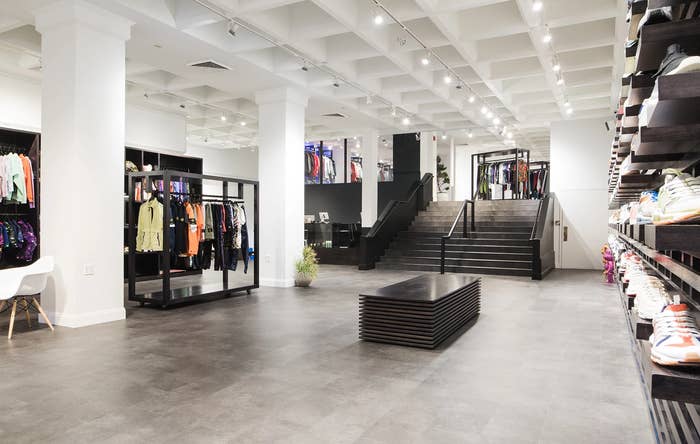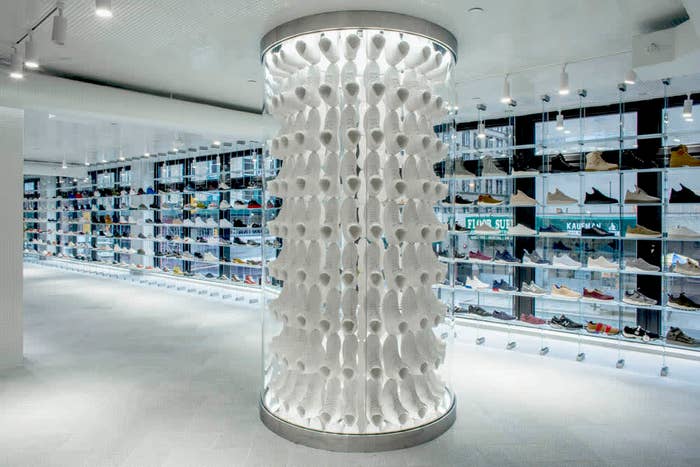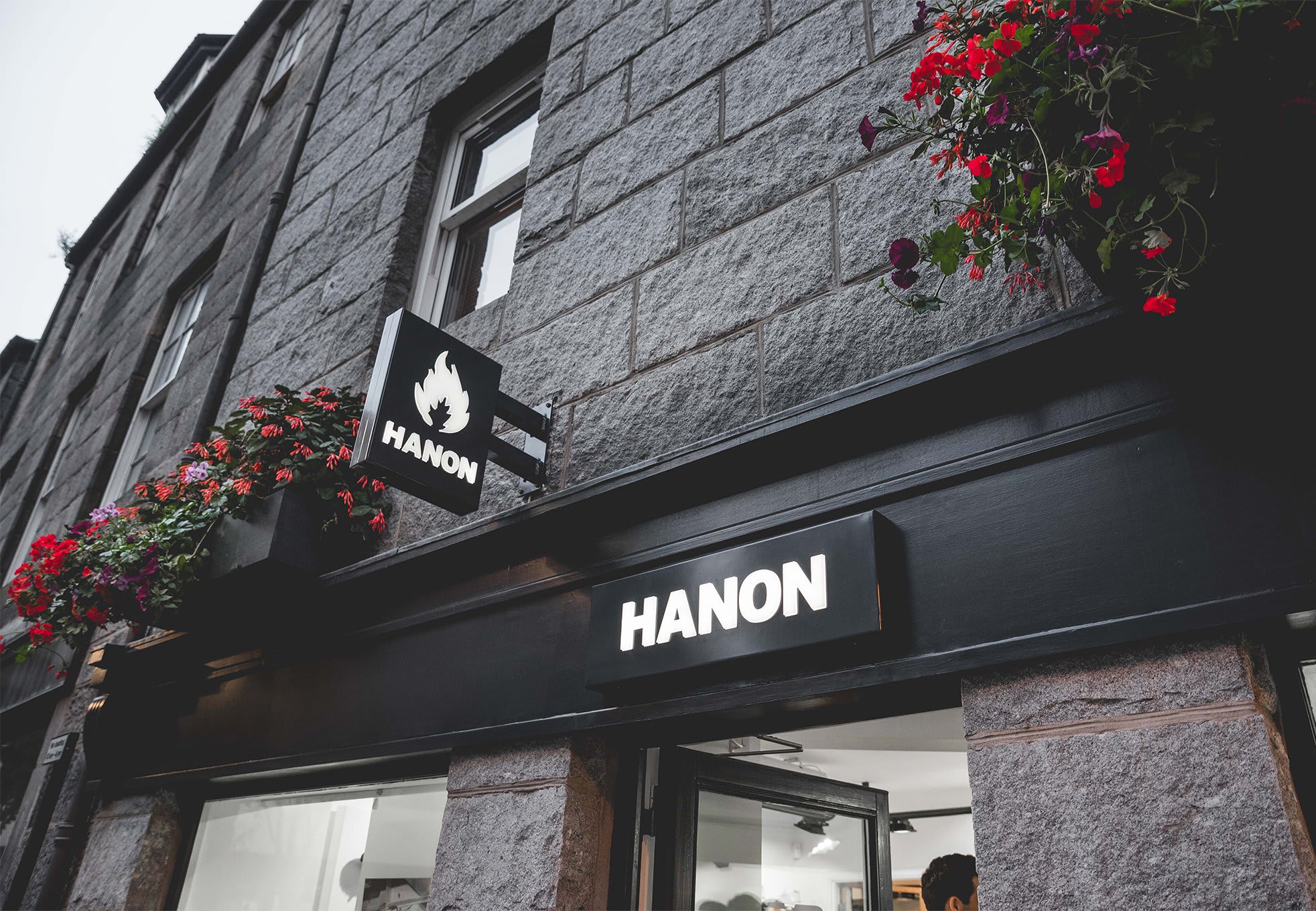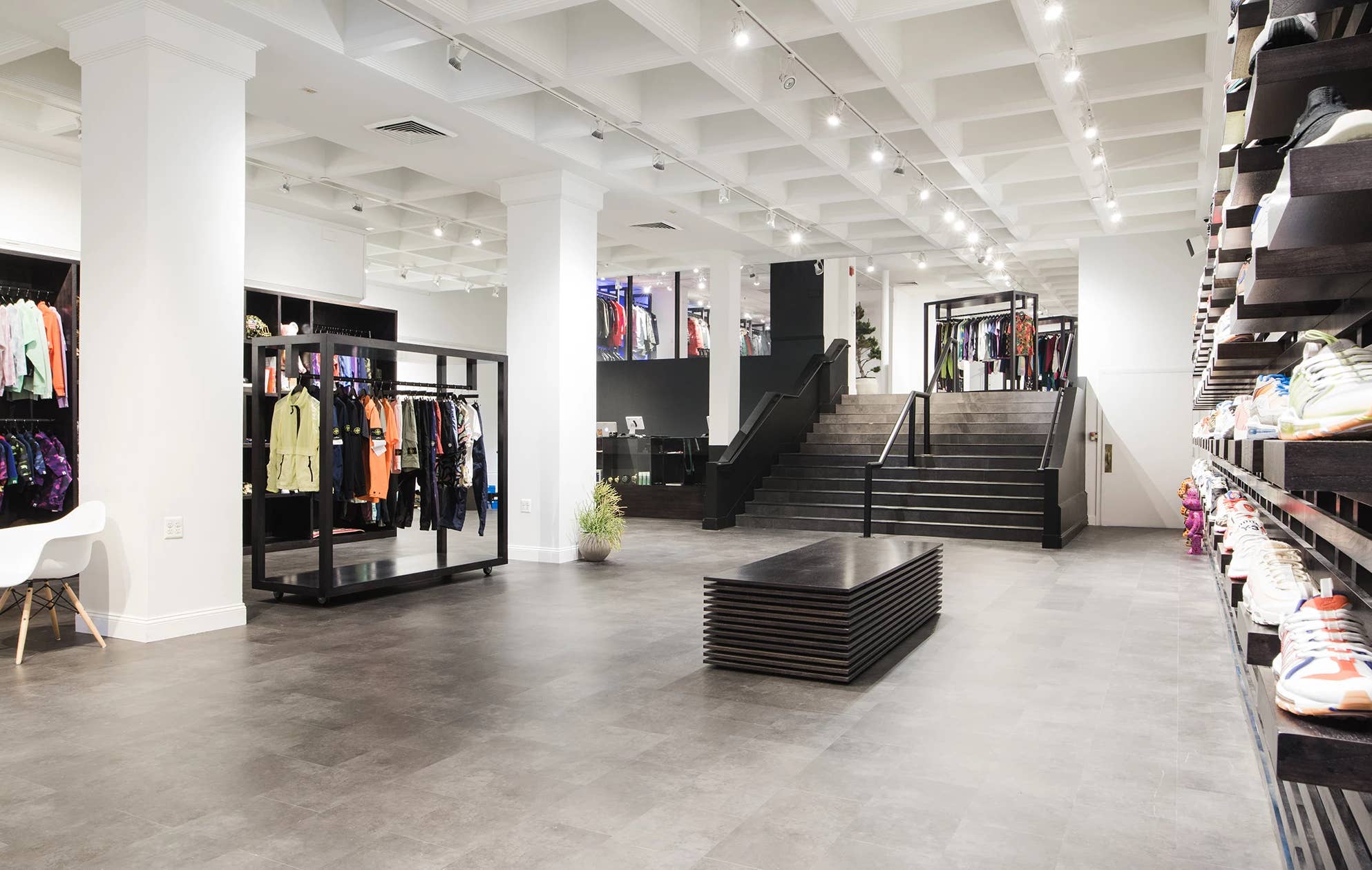
The COVID-19 pandemic has brought the world to a standstill. Everyday life for nearly everyone has been altered in a significant way. This includes medical workers, school teachers, restaurant workers, barbers, and even sneaker retailers. Shops have been forced to shut down their physical locations, with most opting to sell strictly online. It’s created a challenging landscape for sneaker stores, with some rethinking their business strategy all together.
For global retailer Concepts, which has its roots in the Boston area, it’s the biggest setback that the store has faced in nearly 20 years. “Brick-and-mortar retail is the foundation of who we are. It's an expression of our authentic passion for storytelling. So of course, we are massively impacted by all of this,” says Concepts owner Tarek Hassan. “We had to close our doors on March 16, and I remember we haven't had to do that since [Sept. 11, 2001].”
Hassan says that Concepts was set to open another store in Boston in July, but that’s been pushed back. “We'll be opening sometime this year, but that's going to be pushed back a little bit. We are relentless and adjusting plans to be ready to welcome everyone back as soon as this gets behind us, as we know we can,” he says.
The uncertainty of the moment has presented challenges even for those trying to be charitable. Ronnie Fieg, co-owner of Kith, said on an episode of The Complex Sneakers Podcast that five of his employees were going to auction off their Kith x Nike Air Force 1s (that were only given to friends and family) and give the proceeds to make more N95 masks to give to the hospitals. An auction was set to happen, but the platform laid off 90 percent of the employees. He says he’s still trying to make that happen, and had, at the time of the podcast on April 10, rounded up 3,000 masks.

Concepts has been charitable in its own community by donating sneakers to those working at Boston-area hospitals during the pandemic. “We wanted to be useful, and we had great relationships with the local hospitals here in Boston. [Workers] are on their feet during these 12, 18-hour shifts, so providing them with comfortable sneakers was simple,” Hassan says. “We are pulling inventory from our warehouse and getting it to them as fast as we can. I know we are hearing also that the healthcare workers now need to leave their footwear at the hospital. Hopefully, this will address just one of the things they have to worry about.
Hassan says that Concepts has been able to donate around 3,000 pairs of sneakers to hospitals.
Having to close physical stores has hurt business for retailers, but we live in a digital society and e-commerce has helped them stay afloat. “Our e-com business is on the rise, but definitely coronavirus has altered the way we operate and how we communicate internally and externally, no matter what channel that we focus on,” says Hassan. “We are very fortunate to be able to still function and trade revenue through e-commerce. And we have been agile in our day-to-day adjustments of all our efforts solidly through physical.”
Not all sneaker boutiques have kept their warehouses open during the COVID-19 pandemic. Hanon, located in Aberdeen, Scotland, chose to close down not only its physical location but also its warehouse. In an Instagram post on March 27, the store said: “Following the closure of our Aberdeen store this week, HANON has been listening very carefully to our colleagues working in warehousing and distribution operations to fulfil online orders for our customers, and it is clear that many colleagues increasingly feel that they should be at home given the current circumstances. The Government has said that online retailers can 'operate normally' but there is nothing normal about the current situation and we have therefore taken the very difficult decision to temporarily close our online, warehousing, and distribution operations.”

After being closed for over two weeks, Hanon resumed operations of its warehouse.
Sneaker boutiques aren’t the only shops that have been affected, the pandemic has also had an impact on resale and consignment shops.
“Online’s been OK for us, but it’s never been our bread and butter,” said Jaysse Lopez, the owner of Urban Necessities, a resale shop with locations in Las Vegas and New York City, during an interview with Complex News’ Racks Hogan. “Over this last couple of weeks, it’s all we got.”
Another factor affecting sneaker stores is getting the physical product in their stores. It’s not hard to imagine that certain sneaker releases are going to be pushed back in the coming months due to the COVID-19 outbreak. “Think about how many about many releases are going to get pushed back. We’re four or five months [with] China shut down. Now the States [is shut down],” said Lopez. “I think a lot of GRs are going to hit different for a small amount of time.”
Some collaborative releases for Concepts have been pushed back, too, but the brand believes it will be able to make everything at work at some point. “Yes, of course it has [affected project release dates], but we were able to adjust for that and we were able to push some of those projects to a further date,” says Hassan.
The pandemic has also forced Kith to push back certain projects, although it’s unclear exactly which ones. “We had to push back a number of projects that we worked on. Big projects. That was tough,” Fieg said. He also said we’ll have to wait and see what happens with the release of the Kith x Nike Air Force 1, which was supposed to be the opening shoe for the Tokyo Olympics, due to the pandemic.
Through all of this, though, it’s forced businesses to adapt, to find smarter and better ways to operate with their backs against the wall. It’s been a hard time, but also a time of learning. “In a way that's making us evolve into something,” says Hassan. “We are also particularly investing in our store staff and making sure that we're maintaining everyone on the table. So we are currently tapping into them as a key resource on many initiatives, like social and digital, new store openings, e-commerce, merchandising, planning, and so on.”
It’s times like this that make us rethink our lives, and our business approach. As Hassan puts it, “So, that's the impact that's been happening.”


